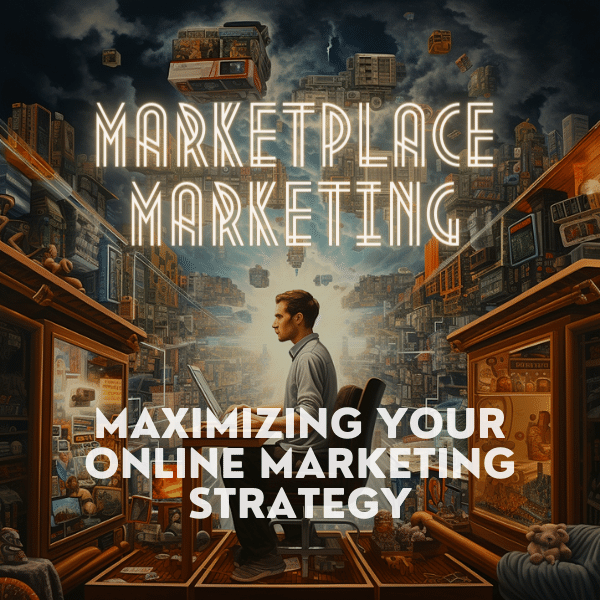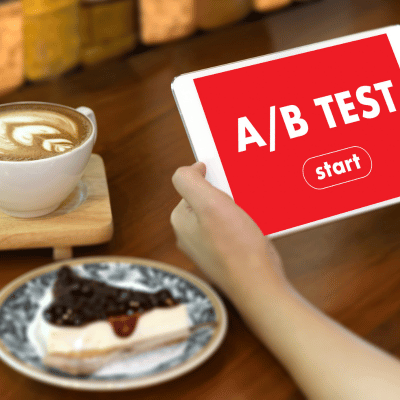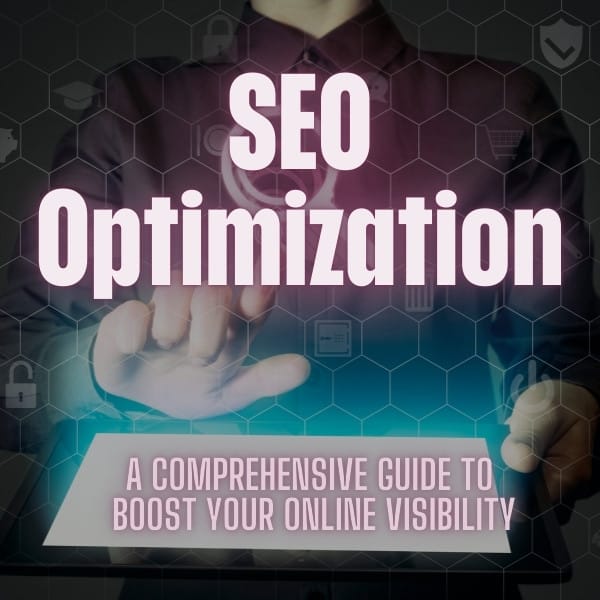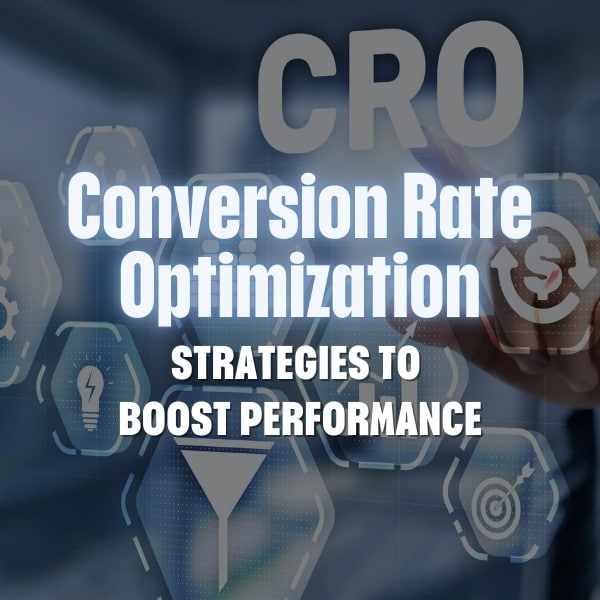Why you can trust Sunlight Media
- Expertise and Experience:Our content is crafted by seasoned professionals with extensive experience in digital marketing, ensuring you receive accurate and actionable advice.
- Unbiased Information:We provide impartial insights and recommendations based solely on what's best for your business, without any hidden agendas or promotions.
- Thorough Research:Our articles are backed by comprehensive research and the latest industry trends, ensuring you stay informed with reliable and up-to-date information.
- Transparency and Honesty:We believe in complete transparency. We disclose our sources, methodologies, and any potential conflicts of interest, so you can trust the integrity of our content.
- Continuous Improvement:We constantly review and update our content to reflect the latest developments in digital marketing, so you always have access to the most current and relevant information.

In today’s fast-paced digital world, the importance of having a robust marketplace marketing strategy cannot be overstated. As online marketplaces continue to grow and evolve, businesses must stay ahead of the curve to remain competitive and reach their target audience. By understanding the key components and advanced techniques of marketplace marketing, businesses can maximize their marketing efforts, drive traffic, and increase conversions. So, are you ready to unlock the full potential of your online marketplace?
In this blog post, we will delve into the world of marketplace marketing, exploring the unique challenges and opportunities presented by online marketplaces, the importance of understanding your target audience, and the key components of a successful marketplace marketing strategy. Moreover, we will introduce advanced techniques such as content marketing, email marketing automation, and the utilization of new technologies to help you stay ahead of the competition.
Short Summary
- Comprehensive understanding of buyers and sellers is needed for successful online marketplace marketing.
- Strategies such as SEO, social media marketing & influencer collaborations are essential components to engage target audiences & drive traffic.
- Utilizing new technologies, KPIs & A/B testing can optimize efforts for better results.
Understanding Online Marketplace Marketing
The rise of online marketplaces has transformed the way we buy and sell goods, with platforms like Amazon, eBay, and Etsy becoming household names. However, the success of these platforms is not solely due to their innovative business models but also their strategic online marketplace promotion efforts. To engage both sellers and buyers effectively, online marketplaces require tailored marketing strategies that cater to their unique challenges, including boosting marketplace sales.
Unlike traditional businesses, online marketplaces must navigate the complexities of targeting two distinct audiences – the sellers and the buyers. This requires a deep understanding of their needs, preferences, and motivations, which can only be achieved through thorough market research. With a strong marketing strategy in place, online marketplaces can drive traffic, increase conversions, and ultimately, boost sales.
Online Marketplaces vs. Traditional Businesses
One of the most significant differences between online marketplaces and traditional businesses lies in their target audience. While traditional businesses typically focus on either B2B or B2C markets, online marketplaces must cater to both sellers and buyers, each with their own distinct needs and preferences. This presents unique marketing challenges but also offers opportunities to capitalize on word-of-mouth marketing and influencer collaborations.
Various strategies can be employed to market online marketplaces, such as:
- Traditional advertising
- SEO strategy and optimization
- Social media marketing
- Influencer collaborations and partnerships
- Content marketing
- Email marketing automation
Measuring and optimizing these marketing efforts is crucial to ensure their effectiveness and achieve the desired outcomes for your online business.
Finding the right balance between targeting sellers and buyers can be a delicate task, but by understanding their unique needs and preferences, online marketplaces can craft marketing strategies that effectively engage both audiences. This, in turn, will drive traffic, increase conversions, and ultimately, boost sales.
Target Audience and Market Research
To create a tailored marketing strategy for your online marketplace, it is essential to understand your target audience and conduct thorough market research. By identifying the defining demographics of your platform, you can gain insights into customer motivations, preferences, and needs. This knowledge will help you craft marketing strategies that resonate with your audience, draw them to your platform, and ultimately, convert them into loyal customers.
Market research can be conducted through various channels, such as analyzing customer reviews, researching blogs and online forums related to your niche, and studying your competitors’ marketing strategies. The more information you gather, the better positioned you will be to create a marketing plan that addresses your target audience’s pain points, capitalizes on market opportunities, and sets your online marketplace apart from the competition.
At the foundation of a successful marketplace marketing strategy lies a deep understanding of your target audience’s needs and your unique value proposition. By conducting thorough market research and continuously refining your marketplace marketing plan based on data-driven insights, you can ensure that your online marketplace remains relevant, engaging, and poised for growth.
Key Components of a Successful Marketplace Marketing Strategy
A successful marketplace marketing strategy consists of several key components that work together to engage your target audience, drive traffic, and boost conversions. These components include search engine optimization (SEO), social media marketing, and influencer collaborations. By leveraging these strategies, online marketplaces can effectively promote their platform, reach a wider audience, and ultimately, achieve their business goals.
Each of these components plays a crucial role in your overall marketing strategy, addressing different aspects of your online marketplace’s visibility and user engagement. In the following sections, we’ll explore each component in greater detail, discussing their importance and the strategies you can employ to maximize their potential.
SEO Strategy and Optimization
Search engine optimization (SEO) is a critical component of any online marketplace’s marketing strategy. By optimizing your platform for search engines, you can increase visibility, drive organic traffic, and ultimately, boost sales. In fact, effective SEO optimization can potentially double your platform’s revenue.
To optimize your online marketplace for SEO, it is essential to focus on several key aspects. These include:
- Incorporating relevant keywords in your platform’s content
- Crafting SEO-friendly product descriptions
- Optimizing meta tags such as title tags and meta descriptions to accurately depict the content of your pages
By addressing these SEO aspects, including core web vitals ranking, your marketplace will rank higher in search engine results, attracting more potential customers to your platform.
However, it’s essential to remember that SEO is not a one-time effort, but rather an ongoing process that requires continuous monitoring and optimization. By staying up-to-date with the latest SEO best practices and trends, you can ensure that your online marketplace remains:
- Visible
- Competitive
- Relevant
- Engaging
In the ever-evolving digital landscape, utilizing an online platform is essential for success.
Social Media Marketing
Social media marketing is another vital component of a successful marketplace marketing strategy. By leveraging popular social media platforms such as Facebook, Instagram, and Twitter, online marketplaces can effectively engage with their target audience, promote their platform, and drive traffic to their website.
To create engaging content for your social media profiles, it is essential to understand your target audience’s preferences and interests. This can be achieved through market research, customer feedback, and analyzing the performance of your competitors’ social media content. Once you have a clear understanding of your audience, you can craft compelling and visually appealing content that resonates with them and encourages them to engage with your platform.
In addition to creating engaging content, it is also important to maintain an active presence on social media by regularly posting updates, responding to customer inquiries, and participating in relevant conversations within your niche. By doing so, you can foster a sense of community around your online marketplace and establish your platform as a trustworthy and reliable source of information.
Influencer Collaborations and Partnerships
Influencer collaborations and partnerships offer a powerful way to increase visibility and awareness of your online marketplace. By forming strategic alliances with influencers who have a substantial following, you can leverage their audience’s trust to promote your platform and products. In fact, studies have shown that for every $1 spent on influencer marketing, businesses can expect a return on investment of $5.78.
Influencer marketing can take many forms, including:
- Sponsored posts
- Product reviews
- Collaborations on content creation
- Social media takeovers
By carefully selecting influencers who align with your brand values and resonate with your target audience, you can create authentic and engaging marketing campaigns that drive traffic and conversions for your online marketplace. Additionally, complementary brands building partnerships can further enhance your marketing efforts and reach.
Advanced Techniques for Marketplace Marketing
While the key components of a successful marketplace marketing strategy are essential for driving traffic and conversions, there are also advanced techniques that can help you stay ahead of the competition and further optimize your marketing efforts. These techniques include content marketing, email marketing automation, and utilizing new technologies such as chatbots and AI-driven analytics.
By leveraging these advanced techniques, online marketplaces can not only attract and retain customers, but also streamline their marketing processes, increase efficiency, and ultimately, achieve better results. In the following sections, we’ll delve deeper into each of these advanced techniques and discuss how they can be utilized to maximize your marketplace marketing efforts.
Content Marketing Approach
Content marketing is an effective way to attract and retain customers by creating and distributing valuable content that addresses their pain points and interests. This can take the form of:
- Blog posts
- Videos
- Podcasts
- Other content formats that resonate with your target audience.
By developing a content marketing strategy that focuses on providing informative and engaging content, online marketplaces can position themselves as thought leaders within their niche, build trust with their audience, and ultimately, drive traffic and conversions.
Additionally, by regularly updating and promoting your content through social media, email marketing, and other channels, you can ensure that your platform remains relevant and top-of-mind for your target audience.
Email Marketing Automation
Email marketing automation is a powerful tool that allows online marketplaces to nurture leads, promote products, and maintain customer relationships more effectively. By automating the sending of personalized and targeted emails to customers and prospects, you can automate email marketing processes to help you increase engagement, conversions, and ultimately, revenue.
Some strategies for creating engaging email communication include maintaining a consistent flow of content, utilizing pop-up boxes to capture user attention, and offering discounts or free services for first-time customers.
By implementing email marketing automation tools and continuously refining your email campaigns based on data-driven insights, you can ensure that your online marketplace remains competitive and continues to grow.
Utilizing New Technologies
New technologies, such as chatbots and automation, can significantly enhance the user experience and streamline marketing efforts in online marketplaces. Chatbots, for example, can provide personalized customer service, automate common customer service tasks, and offer immediate feedback to users. Besides, you can also use an online summary generator to create short and to-the-point content, which the audience can easily grasp.
In addition to chatbots, other advanced technologies and tools that can be employed to optimize your marketing efforts include:
- AI-driven analytics for data-driven decision-making
- Automation tools for email marketing and social media management
- Machine learning algorithms for campaign optimization
By staying up-to-date with the latest technological advancements and incorporating them into your marketplace marketing strategy, you can ensure that your online marketplace remains innovative and competitive in the ever-evolving digital landscape.
Measuring and Optimizing Your Marketplace Marketing Efforts
To ensure the success of your marketplace marketing efforts, it is essential to measure and optimize your strategies based on data-driven insights. This can be achieved through the use of key performance indicators (KPIs) and A/B testing, which allows you to monitor the effectiveness of your marketing campaigns, identify areas for improvement, and make informed decisions for continuous growth.
In the following sections, we will explore the importance of KPIs and A/B testing in greater detail, discussing how they can be utilized to maximize the impact of your marketplace marketing efforts and achieve better results for your online marketplace.
Key Performance Indicators (KPIs)
Key performance indicators (KPIs) are essential metrics used to evaluate the effectiveness of your marketplace marketing efforts.
These can include:
- Traffic
- Conversions
- Customer retention
- Customer lifetime value
By tracking these KPIs, you can gain valuable insights into the performance of your marketing campaigns and identify areas for improvement.
Monitoring KPIs is an ongoing process that requires continuous optimization and refinement. By staying up-to-date with the latest marketing best practices and trends, and adjusting your strategies accordingly, you can ensure that your online marketplace remains competitive and continues to achieve its desired goals.
A/B Testing and Continuous Improvement
A/B testing and continuous improvement are essential for optimizing your marketplace marketing efforts and maximizing results. A/B testing involves comparing two versions of a website or marketing campaign to determine which performs better, allowing you to make data-driven decisions for optimization and enhancement.
By incorporating A/B testing and continuous improvement into your marketing efforts, you can:
- Boost conversion rates
- Increase engagement
- Make informed decisions based on data
- Optimize campaign performance
- Cultivate a culture of continuous improvement
By doing so, you can ensure that your online marketplace remains competitive and continues to grow.
Summary
In conclusion, a successful marketplace marketing strategy requires a thorough understanding of your target audience, the unique challenges and opportunities of online marketplaces, and the key components of a successful marketing strategy. By leveraging SEO, social media marketing, influencer collaborations, and advanced techniques such as content marketing, email marketing automation, and the utilization of new technologies, you can maximize the impact of your marketing efforts and achieve better results for your online marketplace.
Remember, the world of marketplace marketing is ever-evolving, and staying ahead of the curve is essential for success. By continuously measuring and optimizing your marketing efforts, incorporating the latest best practices and trends, and fostering a culture of continuous improvement, you can ensure that your online marketplace remains competitive and continues to grow.
Frequently Asked Questions
What is an example of the marketplace?
Online marketplaces such as Amazon, eBay, Walmart, and Etsy offer customers the opportunity to purchase products and services from third parties. Companies utilize these marketplaces to reach a wider customer base.
What is online marketplace strategy?
An online marketplace strategy is a dedicated approach to distributing products or services through online marketplaces such as Amazon, eBay, and others. It involves taking into account differences between B2C and B2B offerings.
For B2C offerings, the focus is on optimizing product listings, managing customer reviews, and leveraging marketplace promotions. For B2B markets, the focus is on building relationships with buyers, providing competitive pricing, and more.
What are the key components of a successful marketplace marketing strategy?
To have a successful marketplace marketing strategy, ensure you have good SEO, incorporate social media marketing, and collaborate with influential partners.
How can market research help in creating a tailored marketing strategy for an online marketplace?
Market research provides valuable insights that help create a tailored marketing strategy for an online marketplace, enabling it to better understand and meet their target audience’s needs, preferences and motivations.
By leveraging this data, businesses can create more effective campaigns that are tailored to their target audience, resulting in higher engagement and conversions.
By understanding the needs and motivations of their target audience, businesses can create content that resonates with them and drives them.
What are some advanced techniques for marketplace marketing?
Advanced techniques for marketplace marketing include content marketing, email marketing automation, and leveraging new technologies such as chatbots and AI-driven analytics.





















